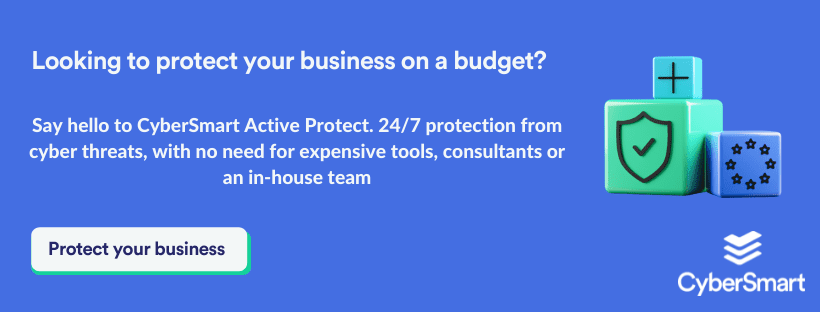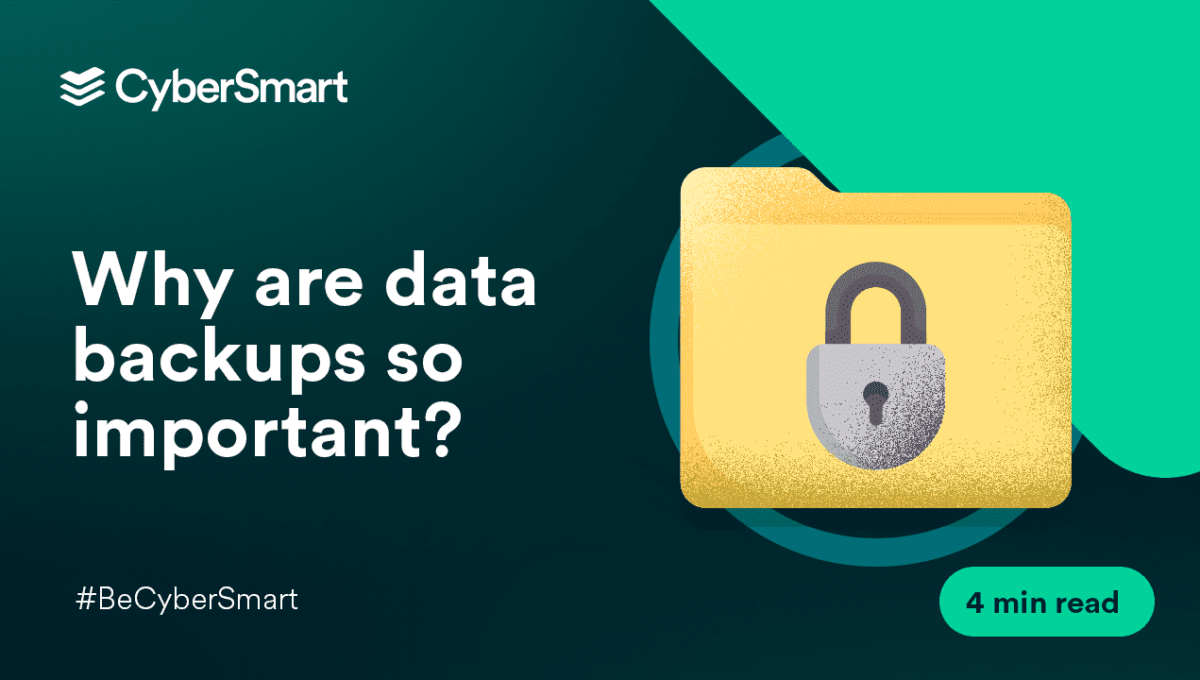If you’re at all tuned into the cybersecurity sphere, you may have noticed that 31st March was World Backup Day (we forgive you if you missed that, it’s not a red-letter day in most peoples’ calendars). In the midst of all the messages telling you that it’s important to backup data, you may have found yourself wondering, why? And more importantly, how?
It got us thinking too. So, here’s the lowdown on backups – how they work, why you need them, and what you need to do to set them up.
Why do you need backups?
The rationale behind backups is pretty simple: sometimes, bad things happen and, when they do, you want to be sure your most valuable assets are safe. In this case, we’re talking about data, whether that’s personal data, customer data, or important files.
Simple, right? However, a staggering 21% of people have never backed up their devices. This is even more surprising when you consider all the ways in which data can be lost. There’s human error, which a Stanford University study estimates accounts for 88% of all data loss. You could lose data through the simple theft of a device. And, then, there’s cybercrime.
Data is the most valuable currency to cybercriminals. It’s why ransomware attacks are so prevalent and it’s also what most cyberattacks target (even a phishing attack is ultimately after data).
Using data backups not only protects you against accidental loss, but it’s also a key weapon against many cyber attacks. Take ransomware as an example; a cybercriminal may have held your data to ransom but, with a backup of that data, your business will still be able to operate while you decide what to do next.
Think of it in the same way you would business insurance. You pay out each month, praying you’ll never have to use it, but if the worst does happen you’re covered.
How do data backups work?
Data backup software is a very simple concept. You install the software on your devices and systems, it then copies and saves your data to an external source. This could be an external drive, data centre, or cloud.
Most modern data backup tools will save to a cloud. The data is copied, encrypted, and sent to a cloud server until you need to restore it. Storing your data in this way ensures that it’s safe in the event of accidental loss or a cyberattack.
What data should you back up?
In most modern organisations, you can find data in just about every function of the business, whether that’s marketing, finance or sales. Files, folders, images, payroll data, supplier data, customer data, third-party app data – it all needs to be backed up.
It might sound counter-intuitive that you need to back up third-party data. However, many Software as a Service (SaaS) businesses will only backup their own platform.
How do you set up data backups?
Setting up data backups for your business isn’t a complicated process. There are countless options, from tools like Dropbox Business to Microsoft OneDrive. The option you choose will largely depend on your business, but there are a few things to bear in mind.
1. Make it cloud-based
You don’t have to use a cloud-based service as your primary backup, an external drive or your own data centre will work just fine. But, a cloud-based option will easily scale with your business and probably save you money in the long run. Added to this, there’s the safety element. Using a cloud is by far the safest way to store your data.
2. Keep it simple
As an SME, it’s unlikely that your business is packed with IT experts. So, whichever option you choose, ensure it’s easy to set up and use. A good test of suitability is to ask yourself whether the least technically minded person in your business would be able to use it without difficulty.
3. Set up a redundancy option
Although you’re never likely to need it (cloud providers lose data very, very rarely), it’s worth setting up a backup of your backup. We advise having three copies of your data: the original, one in the cloud, and one on a company-owned drive or data server. That way you’re covered, whatever happens.
4. Pick one that’s automated
If you’re anything like the majority of small businesses, you probably don’t have a dedicated IT team. And, even if you do, they’re unlikely to have time between fixing printers and helping people locked out of their devices to manage backup processes.
To get around this, you’ll want a solution that backs up your data automatically, so no one in your business has to worry about it.
5. Find out what your provider’s DRP is
Every data storage provider should have a disaster recovery plan (DRP). You need to know what your provider has in place should their servers experience an outage or be destroyed and how you can access your data. So when choosing, be sure to ask.
Protecting your business on a budget is tricky. Calling in the experts or investing in the latest tools is expensive. So what can you do? CyberSmart Active Protect secures your business around the clock with no need for costly consultants, tools or an in-house team. Try it today.

